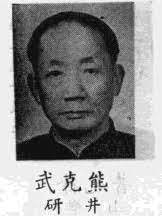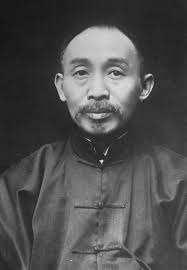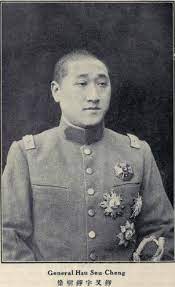Hsü Shih-ch'ang 徐世昌 T. Chü-jen 菊人 H. Tung-hai 東海 Hsü Shih-ch'ang (23 October 1855-6 June 1939), protege of Yuan Shih-k'ai who in 1918 became the only man of civilian background to hold the presidency at Peking. After his retirement in June 1922, he devoted himself to literary and cultural pursuits. Little is known of Hsü […]








